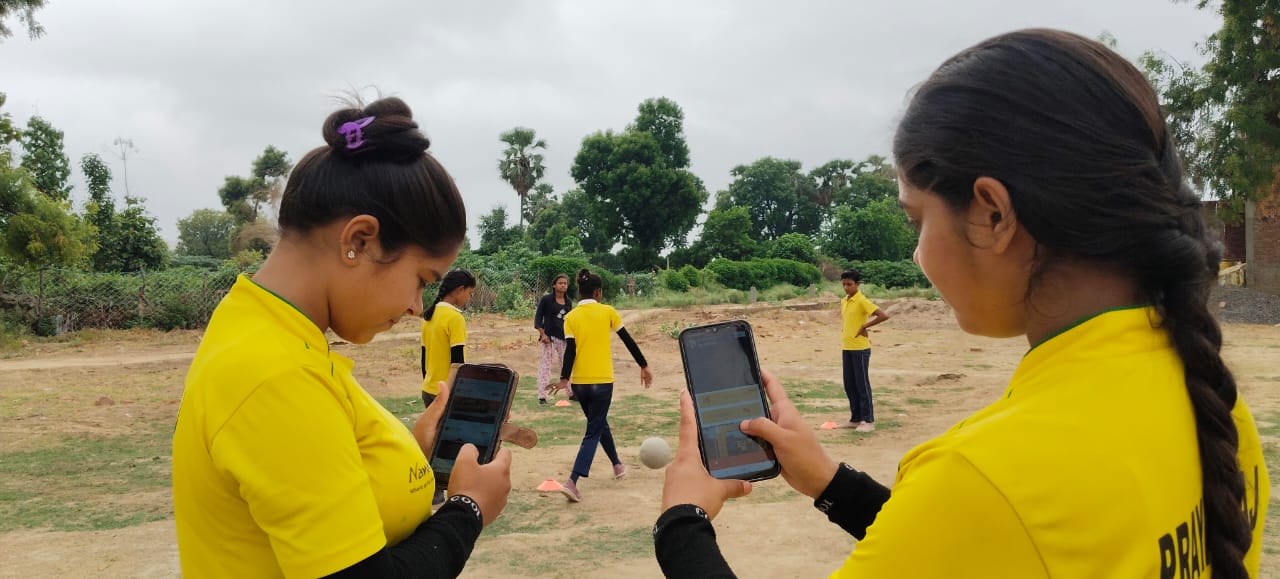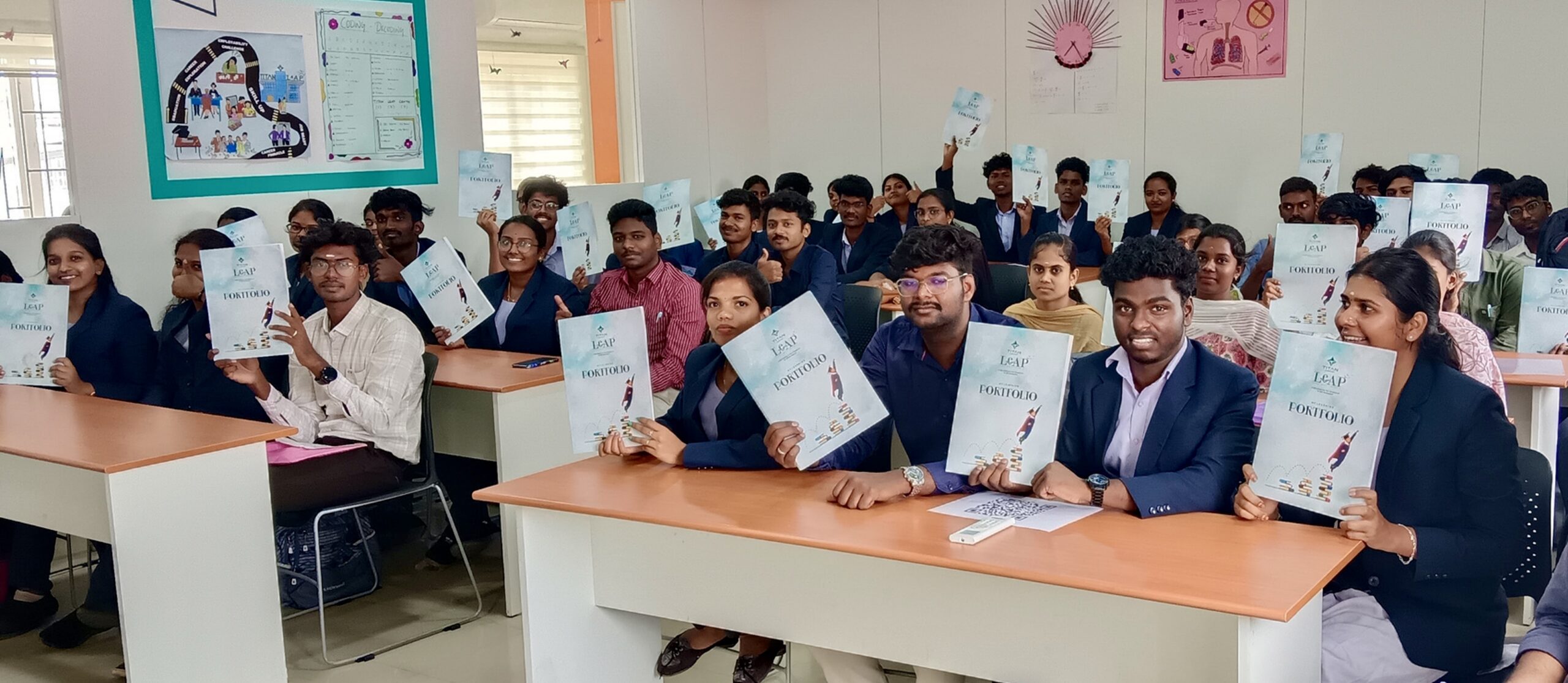Across India—and in many other countries around the world—there is a collective wisdom which exists among women, most especially rural women. This is a deep, inherited wisdom, passed down through generations which concerns the many ways one can grow, prepare, and preserve food. If you’ve ever seen a woman walking through her farm, instinctively checking the moisture and smell of the soil or picking the right leafy greens for dinner, or if you have watched her craft a meal in the kitchen with grace, you’ve witnessed that wisdom in action.
In many cultures and oral traditions, the grandmother is a powerful symbol of the traditions surrounding food, agriculture, healing, and preservation: the one who recalls stories of long-lost varieties of fruit and vegetables which burst with flavour and nutrition; the one who knows just which spices to mix into food or tea to soothe a cough or warm the body in winter; the one who insists that nothing be wasted and everything transformed towards a better purpose.
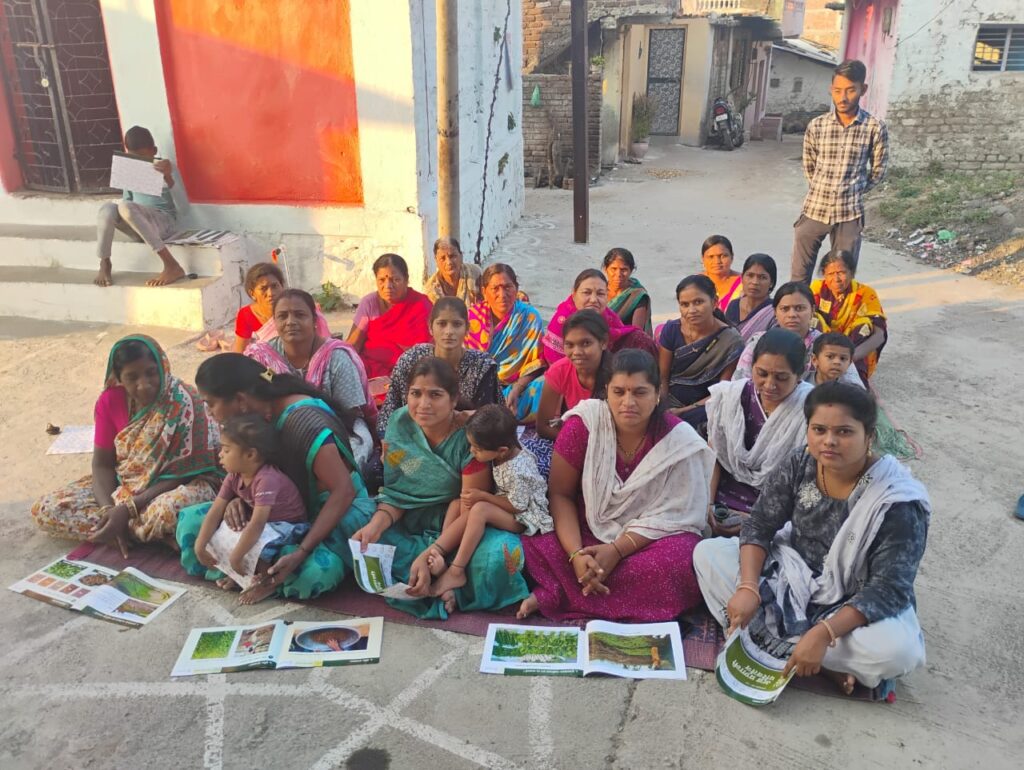
For centuries, women such as these have carried the threads of this vast and intricate knowledge system—one that connects recipes and remedies, seeds and seasons, illness and recovery, soil and sustenance. They weave these strands together in adaptive, creative ways to care for farmlands, forests, families, and communities, often acting as the first responders to illness, keepers of shelters and ecosystems, and architects of resilient, nourishing food systems.
And yet, today, their central role in food preparation and farming is taken for granted. Though women make up nearly 80% of India’s agricultural workforce, their labour and their challenges are rarely covered in mainstream media or addressed in policy. The average person may be conditioned by this invisibility, imagining a “nutritionist” to be the doctor in a white coat. Or a “farmer” to be an old man with a plough, or a young man driving a tractor. Meanwhile, behind almost every harvest and every home-cooked meal, is a woman whose work remains unrecognised and uncelebrated.
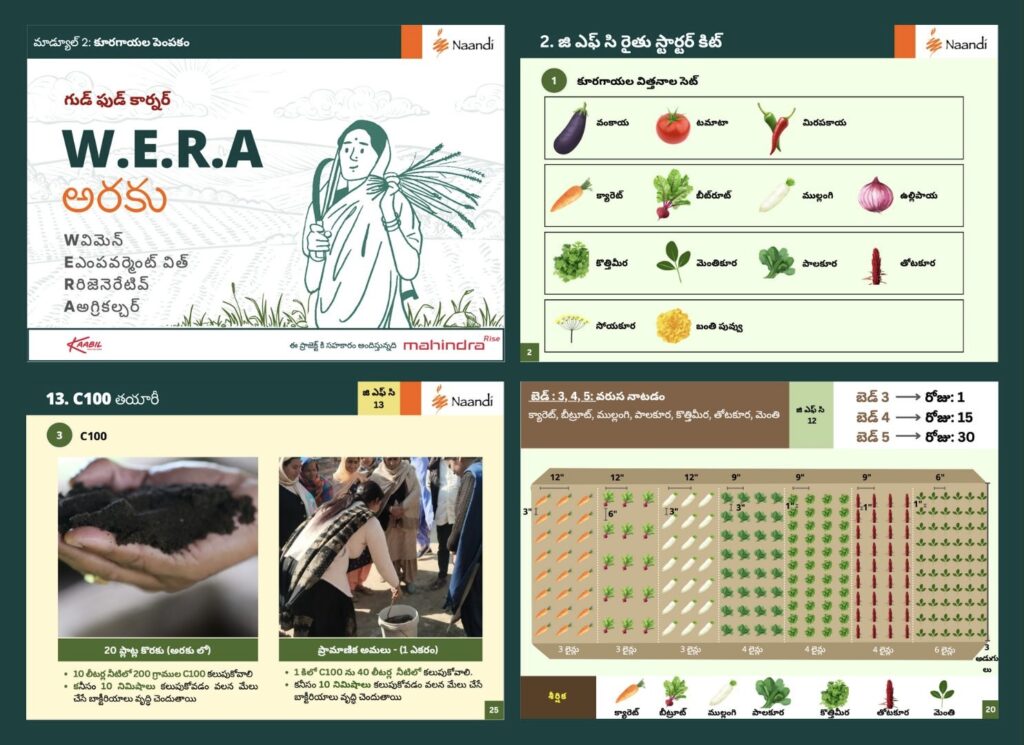
This invisibility of women in food systems isn’t just unfair—it’s harmful. Many of the same women who participate in food production and who spend hours preparing meals to feed their families are also the ones most affected by malnutrition. And when a woman’s health suffers, the health of her children and her community suffers too. It’s a vicious cycle that weakens future generations — and one that must be broken. That’s where WERA comes in.
WERA – standing for Women’s Empowerment through Regenerative Agriculture – is an initiative launched by Naandi in 2023. The vision is to educate, equip, and unite women across rural India to lead a movement of organic-regenerative agriculture. To do this, women are provided with the support, the inputs, and the know-how to start their own Good Food Corners—small plots of land, approximately 1 cent in size, near their homes. By applying their training and inputs in these Good Food Corners, to prepare vegetable beds, treat seeds with nutrient-enhancing inputs, and plant seeds and seedlings according to seasonal cropping calendars, they are able to grow diverse foods without chemicals, thereby ensuring that what they feed their families and circulate across their wider communities is nutritious and safe to eat. And what’s more: through the soil-enriching practices and inputs that they use, they actively demonstrate that chemical-free agriculture is a viable, more sustainable way to grow food, food which is better for people and the planet.
Since its inception, the programme has reached 120,000 women in rural regions of Muktsar and Tarn Taran in Punjab, Araku in Andhra Pradesh, Shravasti in Uttar Pradesh, and Wardha in Maharashtra. Close to 70,000 Good Food Corners have been established so far, and together, these small plots of land serve as platforms where women stand together to be seen as farmers, teachers, entrepreneurs, and leaders. This group of empowered leaders is expected to expand this year, as our operations plan to take on an additional 100,000 women into the programme.
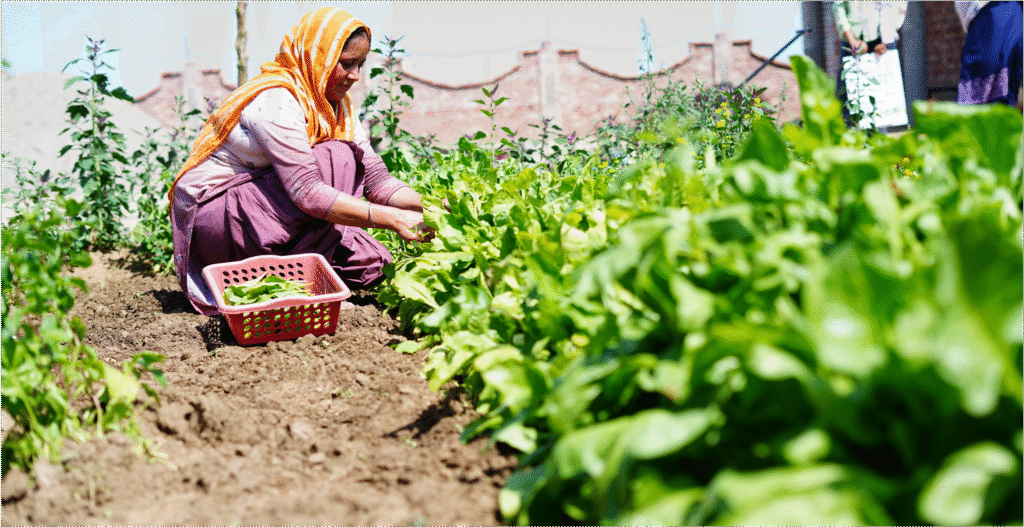
a nurtured place that demonstrates how chemical-free agriculture can seed abundance and health across lands and communities.
Each woman who voluntarily joins the programme receives what is called a Good Food Corner Starter Kit. This Kit contains all the seeds, seedlings, agri-inputs, and instructive manuals and calendars (printed in their native language) for the women to prepare their Good Food Corner and begin farming with the support of their own community. Through trained, village-based teams—70% of whom are local women—knowledge about how to use these Kits to grow vegetables and leafy greens spreads organically. This programme is one which inspires us and fills us with hope. We’d love to share the best parts about WERA with you, and in doing so, we hope you will come to love the programme as much as we do.
1. It restores women’s rightful place as leaders in agriculture—not just as workers, but as custodians of new knowledge and teachers and leaders of a responsible, regenerative approach to agriculture.
2. Women train women, creating a ripple effect of knowledge, confidence, and cooperation across villages.
3. Nutrition of the women’s families can improve instantly, as all begin to consume seasonal, homegrown vegetables and greens free from chemicals.
4. It debunks myths around non-chemical farming, proving to farmers that tasty, healthy crops can be grown without chemicals and pesticides.
5. Women have the capacity to save more money, as their spending on food from outside markets is greatly reduced.
6. Decision-making power in households rises for women, as they bring healthy food to the table and keep the financial standing of the family more secure.
7. All resources are provided free of cost to the women—seeds, tools, training—ensuring accessibility and equity.
8. Women emerge as role model farmers, inspiring other farmers to learn about and adopt regenerative practices, which may transform regions from the grassroots up.



